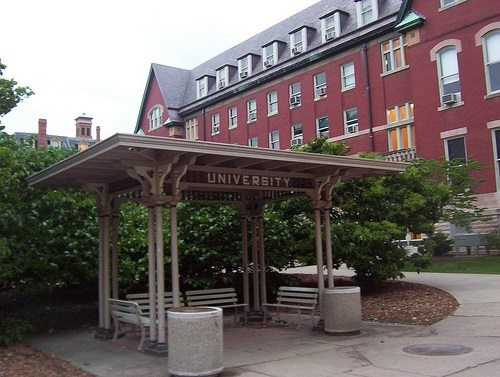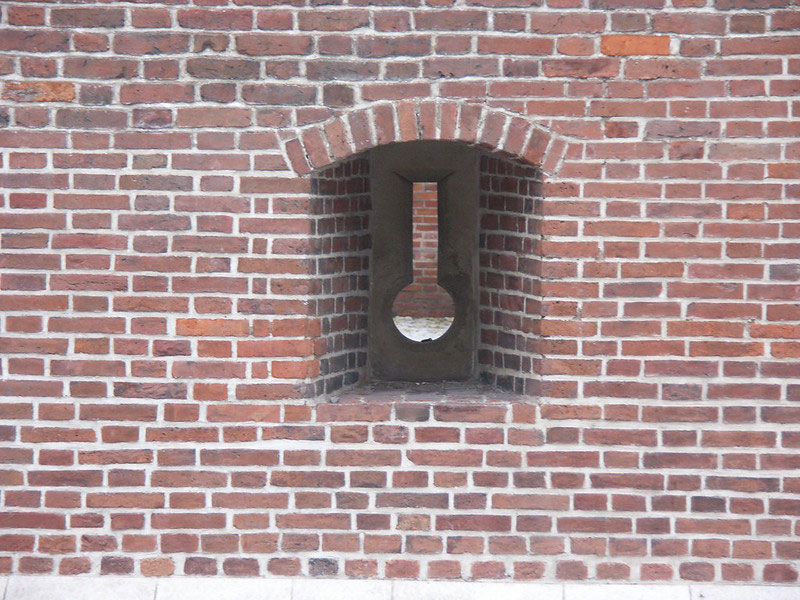
June 13, 2015; The Guardian and NPR (“It’s All Politics”)
For two Big Ten universities, challenges to academic freedom made news last week.
The Universities of Illinois and Wisconsin are both engaged in struggles over the limits of academic freedom and the meaning of tenure. One involves the case of an individual professor whose appointment was terminated last fall for making what were seen as offensive Twitter comments during the height of the recent conflict in Gaza. The other involves the ongoing efforts of Wisconsin Governor Scott Walker to limit the power of labor in his state.
At its 101st annual convention, the American Association of University Professors (AAUP) censured the University of Illinois for its actions in rescinding a job offer to Professor Steven Salaita last fall. Convention delegates accepted a report from an investigative committee that recommended the censure. The committee charged with reviewing the facts of this case found that the university’s decision to rescind its job offer “for the reasons stated by the chancellor and the board violated Professor Salaita’s academic freedom and cast a pall of uncertainty over the degree to which academic freedom is understood and respected at UIUC. The subcommittee further concluded that the chancellor in her rejection of the Salaita appointment contravened AAUP’s widely accepted standards for the conduct of academic governance.”
The committee’s report included comments from its chair, Henry Reichman, professor emeritus of history at California State University, East Bay, which placed the findings in perspective:
“The dismissal of Professor Salaita has roiled the UIUC community and much of academia; it is one of the more significant violations of academic freedom this decade. The issue in the case has never been the content of Salaita’s message. One may consider the contents of his tweets to be juvenile, irresponsible, and even repulsive and still defend Salaita’s right to produce them.”
Fox News reported that University Chancellor Phyllis Wise said in an email to faculty that the decision was “disappointing, but not unexpected. We take this decision by the AAUP seriously. We understand that it will have repercussions on the scholarly activities of many in our community, and we intend to address both the censure and the underlying concerns through our established processes of shared governance.”
How the AAUP Censure will affect the university is not clear. The Champaign News-Gazette noted that “opinions vary about what censure will mean for the UI. Some faculty members fear damage to the UI’s reputation and their ability to recruit new talent. Others say the UI has already taken the hit from the controversy, which inspired academic boycotts, or that censure would affect certain areas on campus, such as the humanities, more than others.”
Sign up for our free newsletters
Subscribe to NPQ's newsletters to have our top stories delivered directly to your inbox.
By signing up, you agree to our privacy policy and terms of use, and to receive messages from NPQ and our partners.
Professor Salaita’s suit demanding that the university reinstate him continues to wind its way through the Illinois court system.
Just to the north, the Wisconsin legislature is considering Governor Walker’s proposed budget, which includes provisions for a significant weakening of tenure protection for the University of Wisconsin’s 5,000-plus tenured faculty members.
According to an NPR news report, Governor Walker, a Republican, is trying to expand the number of reasons that faculty can be let go. He and GOP lawmakers already plan about a 10 percent cut in annual state funding for the university, and they argue that relaxing tenure protections could actually lead to savings.
Walker has said it puts private-sector sensibilities into a public university. “People should be based on performance, they should be based on merit and going forward if we have a program like than in any part of state government, it’s going to be a good thing.” According to the Milwaukee Journal Sentinel, “The plan under consideration also removes tenure from state law, something faculty had considered ironclad, leaving it up to the governor-appointed Board of Regents to establish their own tenure policy.”
In expectation that the proposals will pass the Republican-controlled state legislature, the university’s Board of Regents approved a new tenure policy at its June 8th meeting that incorporated the principles of the proposal over the objections of its faculty. As Rudy Fichtenbaum, AAUP President, stated in a letter to the chair of the University of Wisconsin System Board of Regents and the president of the University of Wisconsin System:
“These changes in tenure and due process…amount to a direct attack on higher education as a public good. […] Tenure and due process do not only protect individual faculty members in their teaching, research, and publication efforts, as well as their right to speak on matters of public concern. They also protect the collective right of the faculty to participate in the formulation of academic policy and budget priorities and to use their professional expertise to recommend hiring and retaining faculty and administrators so that the University System can best serve the public interest and the citizens of the state.”
How these academic freedom disputes will affect each university’s reputation or its ability attract faculty, students and research dollars remains to be seen. But if the impact is not significant we can expect to see more aggressive attacks on Academic freedom in universities across the country.—Marty Levine












